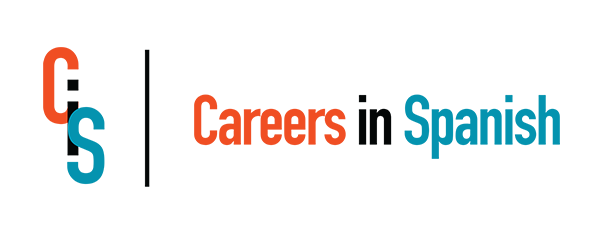This blog post is part of the Professional Stories Series, which collects stories about professionals with a degree in Spanish who did not follow the traditional path of being a school teacher or a university professor. Questions focus on skills, strategies for the job search, and career advice.
In today’s post, we interviewed Spencer Cappelli, an Email Marketing Specialist with Voces Digital, a division of Teacher's Discovery. Spencer speaks English, and Spanish.

What is your job title and what do you do?
Just this month, I started the role of email marketing specialist with Voces Digital, a division of Teacher's Discovery. Voces is a digital platform used by teachers of Spanish, French, German, Italian, and ESL at the middle and high school level. My job is to expand the business and nurture existing customer relationships through the execution of email campaigns and other marketing collateral. My day-to-day includes writing, designing, optimizing, and automating our email functions.
What are the three most important skills needed for the job that you do?
Copywriting—The text in a good email should be clear and succinct. It should also be written to get the recipient to take a specific action. The desired action depends on where the client is located in the customer value journey, but can include subscribing to a list, making a purchase, or responding to a survey.
Email campaign design—You don't need to know your way around every email marketing platform, or even be a particularly design-oriented person. You do, however, have to have a general understanding of email design principles, the anatomy of an email (subject, body, conclusion), and how to make sure your campaign gets sent to the right people.
People skills—Whether you work for an agency or an in-house marketing team, you have to be able to take meetings with the right people to understand the product or service you're trying to market. Being likable, having a good sense of humor, and working well with others is important.
How was the job search? What strategies did you implement to get the job? How did you tailor your résumé?
I had sent out a couple of applications for similar positions while working full-time in my previous role, but nothing hit. Then I found a job post on Indeed asking for an email copywriter with foreign language skills/teaching experience. It seemed like a good match for my interests, even though I had less than a year of experience specifically writing emails. I tailored my resume to highlight my general digital marketing knowledge and fluent Spanish skills, and completed an email marketing certificate course before the first interview. I had three Zoom interviews and one round of salary negotiation.
How does a degree in Spanish help you to get your current job? How often do you use the language at the workplace or in activities related to your job?
My MA in Spanish helped me develop not only my Spanish skills, but it gave me an understanding of teaching methodologies and theories of second language acquisition. Being a TA gave me a window into the psychology of foreign language teachers—what makes them happy or sad, what is difficult about teaching language, what they want, etc. As a digital marketer, I can directly apply this understanding and knowledge to write copy that resonates with the needs, wants, wishes, hopes, fears, or other emotions of foreign language teachers. And although I haven't done much actual speaking in Spanish yet, many of my colleagues are kindred spirits who are passionate about languages—so it's nice to talk about that. Also, being able to properly pronounce the titles of the Spanish books in our digital curriculum while on a call is an added plus that the teachers appreciate.
What career advice can you offer to a student doing a Minor or a Major in Spanish?
I want to take this opportunity to share some hard-fought wisdom with students of modern foreign languages. Unless you plan to teach in a school or go on to do a PhD, a foreign language degree ~by itself~ can be limiting in terms of career prospects.
There are notable exceptions. The federal government, especially the three letter agencies (DoD, NSA, etc), is known to look highly on language skills—but employment in these places is usually contingent on things like high grades, ample personal and professional connections, studies at a high-powered university (private, Ivy or top state school) and/or your ability to get a security clearance. Even working as an interpreter or translator requires dedicated course work in those areas—you shouldn't just assume that fluency in a language makes you a qualified candidate for such roles. Now, does this make studying Spanish or any other foreign language a waste of time? Absolutely not! I believe learning Spanish to the level I've attained is one of the most fulfilling things I've done at both the personal and professional level. However, when applying for jobs in the real world, you must always remember that foreign language skills will be a complement to any other professional capabilities you have—and not the main course. For example, I didn't get my current job solely on the merit of speaking Spanish. I probably ~did~ get it, though, because I know digital marketing, write well, and am one of the few people with both of the previous skills that ~can also~ talk about Krashen's theories of comprehensible input in the context of an interview.
Getting my first job in marketing, which required Spanish, was still more a product of having double majored in Journalism and possessing solid writing skills. So for that reason, unless you're 100-percent set on teaching Spanish after graduation, I heavily encourage current or potential Spanish students to pick up other professional skills in addition to language. Doing a double major is one of the best ways to do that, but it might not be an option for people with budgetary or similar restraints, like mismatched prerequisites. Some other options include:
Participating in/founding a club or professional organization. I co-founded an interpretation club at my university, and it was a great opportunity to get students (and myself) to start thinking about working life post-school.
Doing an internship in a professional area that interests you (or two or three)-Getting a part-time job at your university in marketing, event planning, administration, biz opps, etc
Taking free or paid courses on websites like Coursera, Udemy, LinkedIn, or other sites to learn specific skills in high-growth areas, like coding, digital marketing, UX design, etc. If you're like me and lack the programing interest to become a full-stack developer in your spare time, you can pick up specific skillsets in digital marketing, like SEO, social media management, or email marketing and copywriting, in far less time, and get some freelance gigs to help build a portfolio in the meantime.
Finally, don't forget to include the so-called "soft skills" from your Spanish major or minor in your résumé. If you're graduating with a degree in languages and feeling worried about your job prospects, odds are good you're probably overlooking some of the important skills that you did pick up along the way. Things like the ability to communicate clearly and effectively in writing and in person, manage multiple projects with competing deadlines, quickly scan and interpret large chunks of information, work with a team, and even present in front of a group of your peers are all things worthy of mentioning—and important skills that employers in any industry are always looking for.
You can connect with Spencer via LinkedIn.
I hope you can see that you have multiple opportunities with a degree in Spanish.
